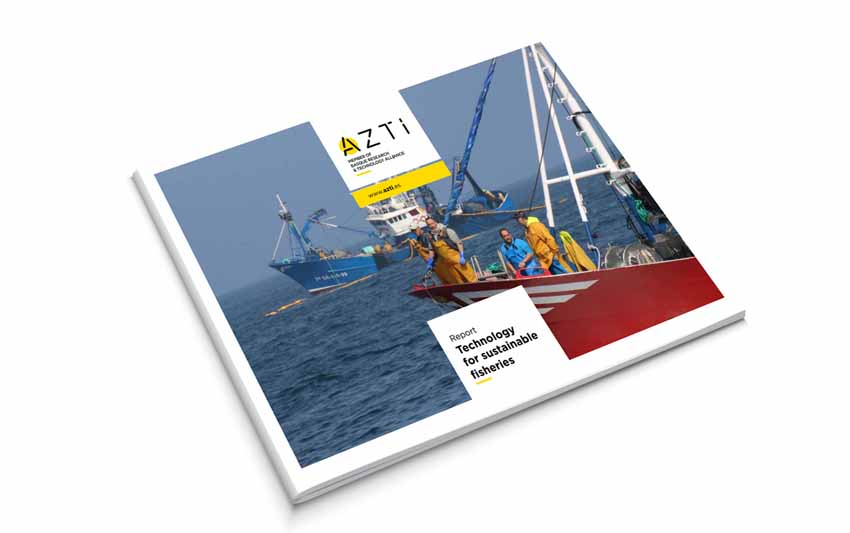European research organisations on ecosystem services gather at the Kursaal
Últimas noticias
Una mirada LGTBIQ+ al reino animal
Circular Economy in Action: Valorisation of By-products through Projects like PRIMA NEWFEED
Strategic Perspectives: Highlights from the Food4Future World Summit for Business Leaders
- AZTI co-organises the European Conference of the Ecosystem Services Partnership (ESP), the organisation that coordinates research on ecosystem services worldwide.
- About 500 people from more than 50 countries will come to San Sebastian from October 15 to 19 to take part in the ESP Europe Conference 2018, organised by the global Ecosystem Services Partnership and co-organised by AZTI.
- Ecosystem services are the benefits that nature provides to society, for example, nourishing food, clean water and climate regulation, and their total estimated value is 125 trillion US dollars, according to the FAO.
- As the threats of climate change become more noticeable, the importance of ecosystem services and biodiversity is gaining prominence, both inside and outside the academic world.
- Holding the event will have an economic impact of 650,000 Euros for San Sebastian.
(San Sebastian, October 15, 2018) About 500 people will gather from October 15 to 19 in San Sebastian to analyse the current state of ecosystem services, as part of the European Conference of the “Ecosystem Services Partnership” (ESP). The event, which is organised by the Global Ecosystem Services Partnership (ESP) and co-organised by AZTI, will take place at the Kursaal and is estimated to have an economic impact on the city of 650,000 Euros (mainly in terms of hotel and catering, R&D, cultural services, retail trade and transport).
Under the slogan “Ecosystem services in a changing world: moving from theory to practice”, scientists, policy makers and practitioners from 51 countries will discuss ecosystem services from different angles and experiences and share data on the latest research being carried out. In total there will be more than 40 sessions, with nearly 500 presentations, in addition to a business day, which will take place on October 18, allowing companies to take part and foster collaboration and knowledge sharing between science and business.
Ecosystem services group together the multitude of benefits that nature provides to society and that make human life possible, hence the importance of studying, understanding and preserving them. “Different ecosystems provide us with nutritious food and clean water; they control diseases and climate; they make it possible to pollinate crops and form soils, among many other benefits.” explained Dr. Rudolf de Groot, chairman of ESP.
Índice de contenidos
The importance of ecosystem services
It is estimated that goods from ecosystem services have a global value of 125 trillion US dollars, yet “they do not receive adequate attention in economic policies and regulations, meaning that not enough is invested on their protection and management,” Dr. de Groot continued.
However, as the threats of climate change become more noticeable, the importance of ecosystem services and biodiversity – “essential to the function of ecosystems and so that they can provide their services” – is growing inside and outside the academic world as our “life insurance”.
“The contributions of ecosystems to human well-being are essential. For example, an ecosystem service, which is important for San Sebastian, is the waves so that people can go surfing, which provides benefits in terms of recreation and tourism,” explained Dr. Ángel Borja, one of the organisers of the event and an expert from AZTI on the environmental management of seas and coasts. However, he added, “our understanding of the functions and services of ecosystems is still incomplete and mostly theoretical, while the demand from policy-makers and professionals for guidance on how to implement thinking on ecosystem services is growing”.
“The introduction of the concept of ecosystem services into decision-making and everyday practice is crucial to achieving the social and economic paradigm shift required for the transition to a more sustainable society, safeguarding biodiversity and restoring natural ecosystems,” Dr. Borja pointed out. For this reason, the central axis of the conference will be to implement specific measures to accelerate this transition and protect ecosystems under climate change.
Ecosystem Services Partnership
The Ecosystem Services Partnership (ESP) aims to enhance communication, coordination and cooperation, and to build a strong network of individuals and organizations. ESP enhances and encourages a diversity of approaches, while reducing unnecessary duplication of effort in the conceptualization and application of ecosystem services. Currently coordinated by the “Foundation for Sustainable Development” based in Wageningen (The Netherlands), the network today is made up of more than 3,000 experts in ecosystem services from around the world that work together in more than 40 groups and a growing number of national networks on every continent.
The meeting, which will take place in San Sebastian, is one of six regional conferences to be held in 2018/2019. The other regional conferences are taking place in Dead Sea (Jordan), Dehradun (India), Campinas (Brazil), Washington DC (United States), and Kpalime (Togo). Each of these cities, together with San Sebastian, will host the conference for its region: the Middle East & North Africa (MENA), Asia, Europe, Latin America, North America, and Africa (in early 2019). In addition to the regional meetings, every two years the organisation holds a world conference, the last of which took place last year in Shenzhen (China). The next ESP World Conference, ESP10, will take place in Hannover, Germany from 21-25 October 2019.
About AZTI
AZTI is a research centre that specialises in food and maritime fishing value chain that carries out strategic and applied research to generate new knowledge. It provides comprehensive, innovative solutions that serve as a base to invigorate new businesses.
Its aim is to transform Science into Sustainable and Healthy Development. To do so, AZTI has a team of committed skilled individuals who establish a symbiotic relationship and strategic bond with clients to provide them with value and improve their competitiveness, while contributing to their financial and social development.
The work and research carried out by AZTI has positioned the centre among the best institutes worldwide in terms of citation ranking per article in several of its research fields. It also participates in scientific committees for international fishery management bodies which determine management measures and fishing quotas for various marine zones so that resources are used sustainably.







